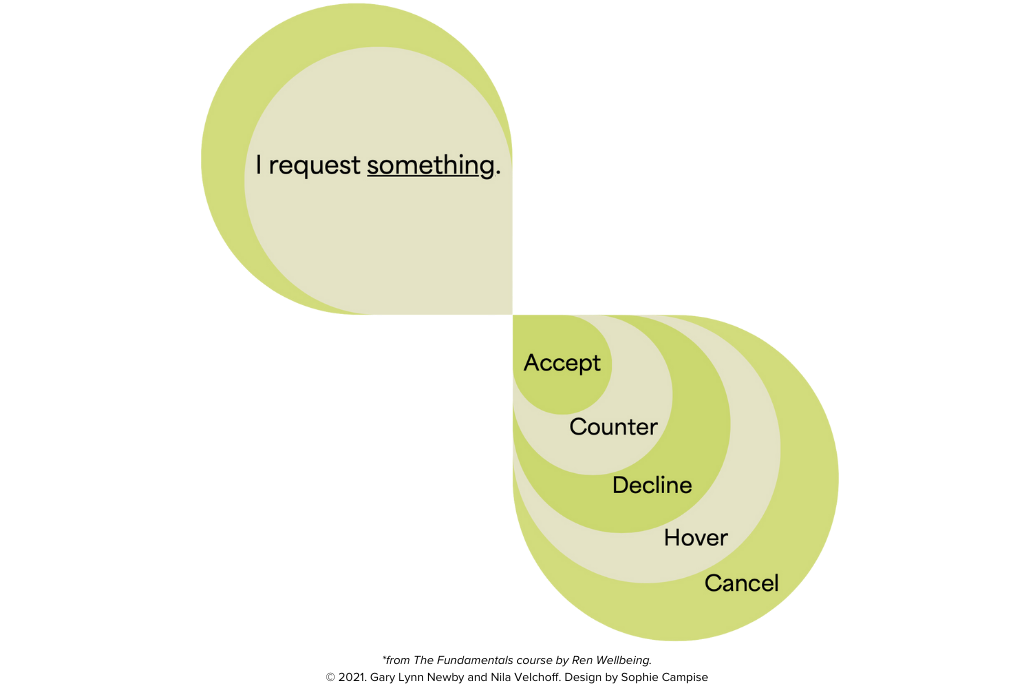Navigating Conscious Relationships: The Art of Effective Requests
Today, we're diving into another question from a Ren Digest reader.
Reader: "How do I communicate my needs without criticizing my partner?"
In relationships, effective communication is the key to understanding and meeting each other's needs. How to communicate your needs without criticism? The solution lies in one of the greatest communication skills you could ever have: the art of making effective requests.
Understanding the Power of Requests
How do we communicate our needs without criticizing? We make effective requests. Always.
Some ways that make a request effective?
Effective requests address the concerns of both parties. Effective requests meet the concerns of the other party as well. This means that something in your request makes the other person want to say yes to you. There is some possibility in it for them.
Counter offer is the secret to having a request accepted. I am bringing this into social contexts - like relationships - where we don't always expect a counter offer to happen. It is vital for us to understand that counter offers are available all the time. In a partnership, it is a kind thing to do to let your partner know they can counteroffer. AND it increases the likelihood of getting your concern addressed.
Effective requests always allow for an authentic no. Always.
If you've taken Ren courses, you're familiar with the significance of requests in building a foundation of trust and workability in your relationships. For those who haven't, don't worry—check out The Fundamentals here. It is on-demand and you can solve your biggest relationship problems today- right now.
Avoiding Criticism: The Pitfall of Making Someone Wrong
Criticism comes when we focus on what someone didn’t do (or they did do something, but it wasn’t up to our personal standards.) Requests focus on action and are more likely to bring about positive, lasting change.
Criticism can suck the life out of a relationship. So, what can we do different?
Rather than making your partner wrong by highlighting something they have - or haven’t - done, consider waiting before saying anything.
I know that it can feel tempting to solve a problem in the moment, but I find that there is usually some type of charge in the space, and it can be really difficult to navigate these more charged situations.
Instead: pause, take a breath. Set yourself up for success and save the conversation for when the situation comes back up. And when it does (it will!), then take your shot at making an effective request in the new moment.
Remember: requests focus on action and are more likely to bring about positive, lasting change.
Turning Needs into Action: The Request Process
When you find yourself feeling resentment, you have unmet needs. Always.
So, ask yourself: Did I make a request?
If not, rather than dwelling on what wasn't done, focus on the future.
When the situation comes back up (it will!), make an effective request to engage your partner in action.
Enrolling them in the process fosters collaboration and shared responsibility.
The Power of Drawing Someone Into Action
Criticism beats someone down and leaves a negative impact, while effective requests draw someone into action.
Instead of dwelling on past shortcomings, use present daily life experiences to guide future positive, collaborative interactions.
The key is to make requests in a way that encourages collaboration. This is the foundation of building trust in relationships.
Conclusion: Building a Foundation of Effective Communication
Effective communication in relationships is rooted in the art of making requests.
By taking responsibility for your needs, avoiding criticism, and turning needs into action-oriented requests, you contribute to a foundation of understanding and collaboration.
Remember, the goal is not to make someone wrong but to draw them into positive action for a harmonious relationship.

